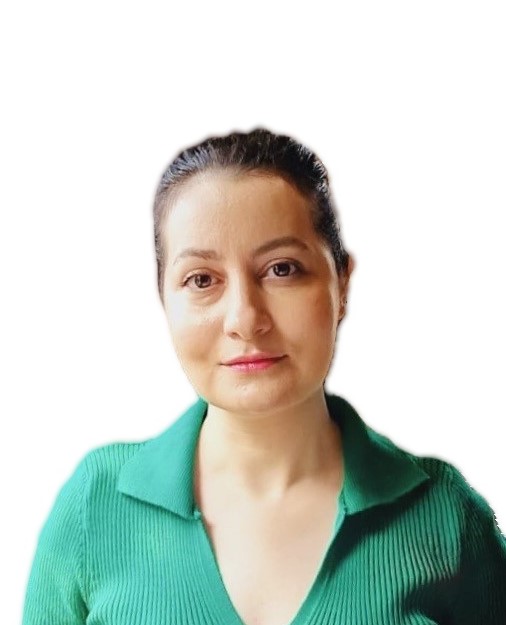
Biography
Dr. Shabnam Kasra is a Senior Lecturer specializing in cybersecurity at the University of New South Wales (UNSW) Canberra. She earned her Ph.D. in Security Sciences, with a focus on Applied Cryptography, from Monash University in Melbourne, Australia. Dr. Kasra has extensive experience in the field of cybersecurity, having served as a Postdoctoral Research Fellow at CSIRO's Data61, a Lecturer at RMIT University's School of Computing...view more
Dr. Shabnam Kasra is a Senior Lecturer specializing in cybersecurity at the University of New South Wales (UNSW) Canberra. She earned her Ph.D. in Security Sciences, with a focus on Applied Cryptography, from Monash University in Melbourne, Australia. Dr. Kasra has extensive experience in the field of cybersecurity, having served as a Postdoctoral Research Fellow at CSIRO's Data61, a Lecturer at RMIT University's School of Computing Technologies, and a Senior Lecturer at UNSW Canberra. Her research interests lie in the areas of cryptography, cybersecurity, information privacy, Automotive Cyber Security, and Blockchain.
Dr. Kasra is a researcher with a strong record of publications in top-tier international journals, conferences, and workshops such as ESORICS (Core A), TDSC (Core A), Information Sciences (Core A), ACM Computing Surveys (Core A*), and INFOCOM (Core A*), to name just a few. She is a CI in the SELFY consortium, a European project led by Eurecat with a budget of 7 million Euros. She was also a CI and Work Package Lead for Vietnam's Industry 4.0 Opportunities for Australian Business project (VHESIF Pool 1 - Asia Trade and Innovation Hub). Furthermore, Dr. Kasra is Project Leader for a project aimed at identifying cybersecurity best practices for the marine renewable energy sector, at Oceania Cyber Security Centre (OCSC).
Contact me for Ph.D. supervision opportunities accompanied by a highly competitive scholarship.
My Grants
- SELFY; "contributing with expertise in Artificial Intelligence techniques to detect cyber-attacks in distributed systems." European project consortium led by Eurecat
- Vietnam’s Industry 4.0 Opportunities for Australian Business (VHESIF Pool 1 - Asia Trade and Innovation Hub)
- Identifying cybersecurity best practices for marine renewable energy, The not-for-profit Oceania Cyber Security Centre (OCSC)
-
Secure Content Storage and Delivery via Blockchain Technology
-
Ethically aligned AI cyberbullying detection tools
-
Innovations in online postgraduate teaching to enhance engagement, learning outcomes, and course scores
My Qualifications
Ph.D., Security Sciences (Applied Cryptography), Information Technology, Monash University
My Awards
- Nominee Vice Chancellor’s and RMIT Research Awards
- Postgraduate Publication Award
- People’s Choice Award, Faculty of IT 3 Minute Thesis Competition- Monash University
- Winner’s Award, Faculty of IT 3 Minute Thesis Competition- Monash University
- Best Student Paper Award (ACISP 2017)
- CSIRO Data61 research scholarship
- Monash Graduate Scholarship (MGS)
- Best Student Award with golden medal (Master degree)
My Research Supervision
Supervision keywords
Areas of supervision
- Applied Cryptography
- Searchable Encryption
- Secure Content Storage and Delivery via Blockchain Technology
- The privacy implications of blockchain technology
- Cyber security in vehicular networks
- Data Privacy in Healthcare
- Socio-technical aspects of Securing Machine Learning Systems
Currently supervising
** Scholarships of $35,000 (AUD) are available for PhD students who achieved High Distinction (H1) in their undergraduate program and/or have completed a Masters by Research.
Research Student (PhD & Master by Research) Scholarships:
Several types of scholarships are available; however, admission and scholarship applications are highly competitive. A self-assessment tool is available to get a general feel for your competitiveness. You need to meet the English language requirements.
If you are eligible and interested in working on the following (or closely related) topics or keywords, please send me your CV, academic transcripts, the result of the self-assessment, and a research proposal: highlight research Motivation, Research problems, Research Objectives and Questions, a brief Review of the most relevant Literature, your proposed Methodology (discussing your proposed approach to answer the RQs including the type of data you need and how you will get them, techniques, etc.) and Expected Outcome.
For more information, please refer to the following links on how and when to apply for a research degree.
- Applied Cryptography
- Searchable Encryption
- Secure Content Storage and Delivery via Blockchain Technology
- The privacy implications of blockchain technology
- Cyber security in vehicular networks
- Data Privacy in Healthcare
- Socio-technical aspects of Securing Machine Learning Systems